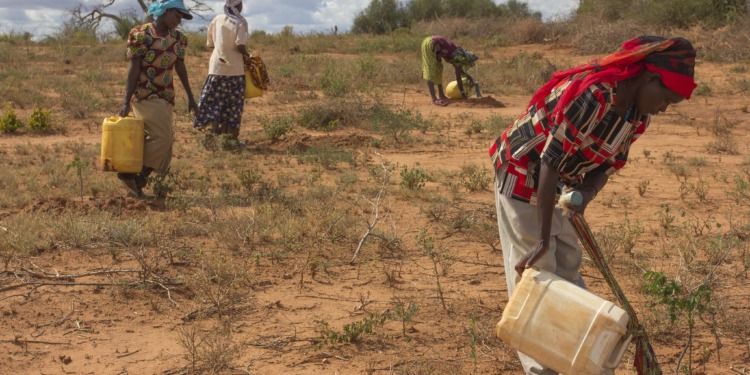Denmark will be paying $13 million to help counter climate change “loss and damage” in developing countries, making them the first UN member state to acknowledge that the EU are one of the largest contributors to global warming, and take economic action to help the people who are suffering the most as a consequence.
According to the Danish development minister, Flemming Møller Mortensen, this decision was prompted by a visit to the areas of Bangladesh that were devastated by flooding in June.
Mortensen summed up the reasoning behind the pledge in his statement:
“It is grossly unfair that the world’s poorest should suffer the most from the consequences of climate change, to which they have contributed the least.”
Pakistan is just one example of this iniquity. As the country’s foreign minister Bilawal Bhutto Zardi commented on Monday, “while contributing only 0.8% to GHG emissions, Pakistan [has been] consistently among the top 10 most vulnerable countries in the world vis-à-vis the impact of climate change.”
Watch what happens when I ask Ministers from the world’s richest countries if they will commit to funding Loss and Damage at COP27.#LossandDamage #PayUp4LossAndDamage
pic.twitter.com/BcLT8JmUuk— Vanessa Nakate (@vanessa_vash) September 22, 2022
The portion of responsibility a country holds for the climate crisis can be evaluated in two ways:
Firstly, the size of the role the nation is playing in the contemporary worsening of the crisis is demonstrated in their current emissions.
Secondly, the role that they have played in the creation of the problem can be seen through the country’s historic emissions recorded since the beginning of the industrial revolution.
The US fairs poorly in both of these criteria. It is the worst offender for cumulative, historic CO2 emissions and second to China in terms of current emissions, responsible for 25% and 12.7% respectively.
The EU isn’t far behind, particularly in terms of their historic contributions which account for 22% of the total. Their current emissions, 2.7GtCO2 in 2021, equate to around 7% of the CO2 still being released.
Related Articles: “Apocalyptic Flood” in Pakistan: With Over 1,000 Dead, the Government Calls for International Aid | COP26: Success or Failure?
Denmark’s financial offering for “loss and damage” is only a drop in the ocean of what is needed to help the developing countries calling for international aid. Tens of billions of dollars would be required to finance the recoveries of countries like Bangladesh, Pakistan, and Sudan from the devastating flooding they have experienced in recent months.
However, it is a gesture that is hoped will break the stigma that offering financial reparations for the effects of climate change opens the country up to legal liability for the damage their emissions have caused.
In the past, only Scotland and the Belgian region of Wallonia, neither of which are in the EU, have made pledges for “loss and damage.”
As Alden Myer, the US lead for the International Climate Politics Hub, stated, this action holds important symbolic significance, as it is “sort of breaking the dam” and placing pressure on other contributors to the climate crisis, like the US, to make similar pledges.
If someone you'd never met flooded your home or burned it to the ground, you'd expect they should pay for the repairs, right?
Same situation.#LossAndDamage https://t.co/1lrMPxCdP5
— Greenpeace (@Greenpeace) September 22, 2022
The 100 million Danish crowns ($13.4 million) will be divided four ways:
- 35 million crowns ($4.6 million) for an organisation that subsides insurance in poorer countries.
- 32.5 million crowns ($4.3 million) for the ministry’s partnerships with civil societies that focus on climate-related loss and damage, with a particular focus on the Sahel region in North Africa.
- 25 million crowns ($3.3 million) for “strategic efforts” to support climate change negotiations in the run up to COP27.
- 7.5 million crowns ($985k) for civil society actors working to protect developing countries from the consequences of climate change.
Both the US and the EU opposed the creation of a separate fund to address this issue of climate-related “loss and damage” at last year’s COP26.
However, following Denmark’s offering as well as those of Scotland and Wallonia, it is predicted that this issue will dominate COP27 discussions in November.
This will clearly demonstrate which countries are willing to act on their words of compassion.
Vanessa Nakate, Ugandan climate justice activist, addressed this in her statement, saying that “we cannot adapt to extinction or to starvation, we can not adapt to loss and damage,” and that it is vital to offer more than just statements of intent, or “sweet nothings,” particularly since this is a crisis the West holds a vast quality of the blame for.
Editor’s Note: The opinions expressed here by the authors are their own, not those of Impakter.com — In the Featured Photo: Women watering mukau sapplings in Kenya’s arid Eastern Province. Featured Photo Credit: World Bank










